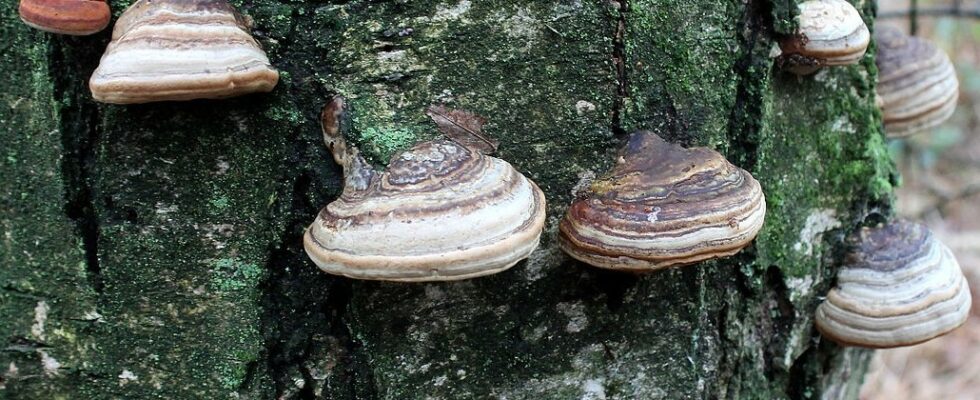What if a fungus was a sustainable solution to replace plastic in our electronic devices?
It is in any case the promising possibilities explored by researchers around a particular specimen answering to the name of Fomes fomentarius.
Champplastique
At first glance, it is difficult to imagine a world where plastic, an omnipresent material in our current society, would be replaced in everyday electronic devices. But that didn’t stop a team of researchers from exploring other options with a somewhat unexpected candidate, but with enormous potential.
So here comes the Fomes fomentarius, a mushroom shaped like a horse’s hoof that has the particularity of having different layers with unique properties. Its structure indeed displays sometimes a spongy shape, sometimes a hard shape like wood, and a set of shapes in between.
” We were really impressed with the structure of this mushroom. Because when nature does something, it’s for a purpose, not just to look pretty. », Underlines Pezhman Mohammadi, one of the authors of the study quoted in source below.
Mushrooms are all the rage right now
The team of researchers thus tried to apply different layers of the Fomes fomentarius to everyday products. One of them could act as an impact-resistant coating, in particular for windshields. The middle layer, softer, could reproduce leather. The hardest, finally, is similar to wood and has also been used for centuries as an alternative to kindling for making fires.
The potential applications of this fungus are therefore numerous. But he is not the only one to have attracted the attention of researchers. Other studies have indeed demonstrated the interest of mushrooms in the fields of building materials, packaging or textiles. In particular, a prototype of headphones has been developed from mycelium, a structure that makes up the mushroom.
This would therefore offer a promising alternative to plastic, which is difficult to recycle, and could thus drastically reduce the production of waste and pollution for a more easily biodegradable version. That said, there is still much to do before massively exploiting these mushrooms.
Intensive research and testing will be needed, and if successful, they should be mass-produced without having to harvest them from the wild, at the risk of jeopardizing biodiversity. It would also eventually be necessary to modify the genome to exacerbate the most relevant properties. Be that as it may, there is no shortage of ideas on the subject and they are springing up… like mushrooms.
Source : Science Advances

6